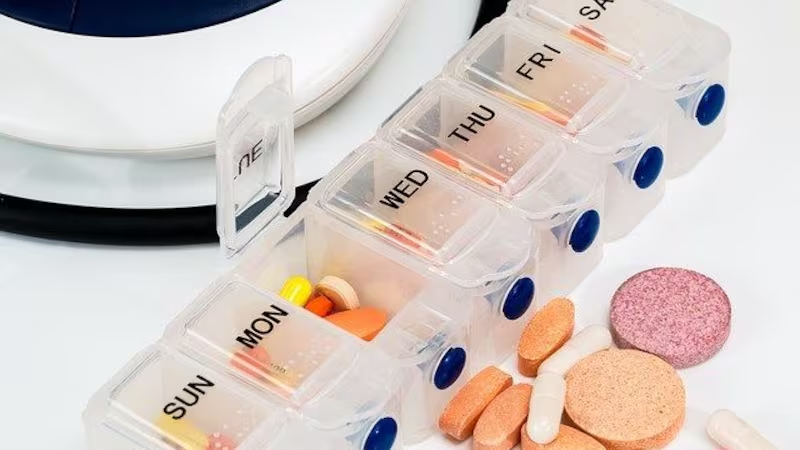
Understanding Medication Management Therapy
Medication management therapy is an integral aspect of modern healthcare, particularly for individuals with chronic conditions, mental health disorders, and complex medical needs. This blog will explore the essentials of medication management therapy, its benefits, and practical tips for effective management.

therapy
What is Medication Management Therapy?
Medication management therapy (MMT) involves the oversight and optimization of a patient’s medication regimen to ensure the best therapeutic outcomes. This process includes the assessment, monitoring, and coordination of medications to enhance efficacy and minimise potential side effects or interactions.
Key Components of Medication Management Therapy
Comprehensive Medication Review (CMR)
Evaluating all current medications, including prescription, over-the-counter, and supplements.
Identifying any potential drug interactions, duplications, or unnecessary medications.
Personalised Medication Plan
Developing a tailored plan that considers the patient’s specific health needs, lifestyle, and preferences.
Ensuring the correct dosages and timings for each medication.
Patient Education and Counseling
Educating patients about their medications, including usage, side effects, and expected outcomes.
Providing guidance on adherence strategies to improve compliance.
Monitoring and Follow-up
Regularly reviewing the patient’s response to medications.
Adjusting the medication plan as necessary based on effectiveness and side effects.
Benefits of Medication Management Therapy
Improved Health Outcomes
Optimising medication regimens can lead to better management of chronic conditions and overall health.
Reduced Adverse Effects
Identifying and addressing potential drug interactions and side effects can prevent complications.
Enhanced Patient Safety
Reducing the risk of medication errors through thorough oversight and regular monitoring.
Cost-Effectiveness
Avoiding unnecessary medications and preventing hospitalizations due to adverse drug events can save healthcare costs.
Practical Tips for Effective Medication Management
Maintain an Updated Medication List
Keep a current list of all medications, including dosages and schedules, to share with healthcare providers.
Use a Pill Organiser
A pill organiser can help keep track of daily medications and ensure doses are not missed.
Set Reminders
Utilise alarms or mobile app reminders to take medications at the prescribed times.
Communicate with Healthcare Providers
Inform your healthcare team about any new medications or changes in your health status.
Be Proactive About Side Effects
Report any side effects to your healthcare provider promptly to address them before they become serious.
The Role of Technology in Medication Management
Medication Management Apps
Apps like Medisafe and MyTherapy provide reminders, track medication adherence, and offer educational resources.
Telemedicine
Virtual consultations can facilitate regular check-ins with healthcare providers for medication adjustments and counselling.
Electronic Health Records (EHR)
EHR systems enable seamless sharing of medication information among healthcare providers, ensuring coordinated care.
What is Medication Management Therapy, and Why is it Important in Healthcare?
Medication Management Therapy (MMT) is a systematic approach to optimising the use of medications for improved patient outcomes. It involves a comprehensive review of all medications a patient is taking, developing a personalised medication plan, educating patients about their medications, and continuous monitoring and follow-up.
Importance in Healthcare:
Improved Health Outcomes:
MMT ensures that medications are used effectively to manage chronic conditions, leading to better control of diseases such as diabetes, hypertension, and asthma.
Enhanced Patient Safety:
By identifying potential drug interactions, duplications, and unnecessary medications, MMT minimises the risk of adverse effects and medication errors.
Cost-Effectiveness:
Optimising medication use can reduce healthcare costs by preventing hospitalizations and complications resulting from improper medication use.
Patient Empowerment:
Educating patients about their medications and involving them in the management process promotes adherence and self-management, leading to improved health and quality of life.
How Does Medication Management Therapy Differ from Regular Medication Administration?
Scope and Approach:
Comprehensive Review:
MMT: Involves a thorough assessment of all medications, including prescription, over-the-counter, and supplements. It looks at the overall picture of a patient’s medication regimen.
Regular Medication Administration: Focuses primarily on the correct administration of prescribed medications without a comprehensive review of all medications the patient might be taking.
Personalised Medication Plan:
MMT: Develops a tailored plan that considers the patient’s specific health needs, lifestyle, and preferences, optimising the therapeutic outcomes.
Regular Medication Administration: Follows a standard dosing schedule as prescribed by the healthcare provider, without personalised adjustments unless there are specific instructions.
Patient Education and Counseling:
MMT: Involves educating patients about their medications, potential side effects, and the importance of adherence, thereby empowering patients.
Regular Medication Administration: May include basic instructions on how to take the medication but often lacks comprehensive education and counselling.
Continuous Monitoring and Follow-up:
MMT: Requires ongoing monitoring and regular follow-up to assess the effectiveness of the medication regimen and make necessary adjustments.
Regular Medication Administration: Typically does not include systematic follow-up unless the patient reports issues or returns for a scheduled visit.
Collaboration and Coordination:
MMT: Often involves collaboration among healthcare providers, including doctors, pharmacists, and nurses, to ensure coordinated care.
Regular Medication Administration: Usually managed by a single healthcare provider without extensive collaboration.
What is a Comprehensive Medication Review, and What Does It Typically Involve?
A Comprehensive Medication Review (CMR) is a thorough evaluation of a patient’s complete medication regimen conducted by a healthcare professional, often a pharmacist. The purpose of a CMR is to ensure that medications are being used safely and effectively, and to identify any potential issues that could affect the patient’s health.
Components of a CMR:
Medication List Review:
Gathering Information: Collecting a detailed list of all medications the patient is taking, including prescription drugs, over-the-counter medications, herbal supplements, and vitamins.
Verification: Ensuring the accuracy of the medication list with the patient or caregiver.
Assessment of Medication Use:
Indication: Verifying that each medication has a clear and appropriate indication.
Effectiveness: Assessing whether each medication is achieving its intended therapeutic effect.
Safety: Identifying potential drug interactions, side effects, and contraindications.
Adherence: Evaluating the patient’s adherence to the medication regimen and identifying barriers to compliance.
Patient Interview:
Discussing the patient’s experience with their medications, including any issues, side effects, or concerns they may have.
Understanding the patient’s lifestyle, preferences, and health goals to tailor recommendations.
Developing a Medication Action Plan:
Creating a personalised plan that addresses any identified issues and optimises the medication regimen.
Providing recommendations for changes, such as adjusting dosages, discontinuing unnecessary medications, or adding new therapies.
Documentation and Follow-Up:
Documenting the findings and recommendations from the CMR.
Planning for follow-up to monitor the implementation of the action plan and reassess the patient’s medication regimen.
How Can a Personalised Medication Plan Improve a Patient’s Health Outcomes?
A personalised medication plan is tailored to meet the unique needs and circumstances of each patient, which can significantly enhance health outcomes.
Benefits:
Optimised Efficacy:
Customising medication choices and dosages to maximise therapeutic benefits and minimise side effects.
Improved Adherence:
Addressing patient-specific barriers to adherence, such as complex regimens, side effects, or lifestyle factors, to improve compliance.
Reduced Risk of Adverse Effects:
Identifying and mitigating potential drug interactions and contraindications, thereby enhancing patient safety.
Enhanced Patient Engagement:
Involving patients in the decision-making process, leading to greater understanding and ownership of their treatment plan.
Better Management of Chronic Conditions:
Providing targeted therapy adjustments based on the patient’s evolving health status and response to treatment.
What Are Some Effective Ways to Educate Patients About Their Medications?
Patient education is a crucial aspect of medication management therapy. Effective education strategies ensure that patients understand their medications and how to use them properly.
Effective Strategies:
Clear and Simple Communication:
Using plain language and avoiding medical jargon to explain medication use, benefits, and potential side effects.
Written Materials:
Providing easy-to-read written instructions, pamphlets, or medication guides that patients can refer to at home.
Interactive Tools:
Utilising visual aids, charts, and demonstration devices to illustrate how to take medications correctly.
Teach-Back Method:
Asking patients to repeat back the instructions in their own words to confirm their understanding.
Digital Resources:
Recommending reliable websites, apps, or videos that offer additional information and support.
Personalised Counselling:
Offering one-on-one counselling sessions to address individual concerns and answer questions.
Why Is Regular Monitoring and Follow-Up Essential in Medication Management Therapy?
Regular monitoring and follow-up are critical components of effective medication management therapy. They ensure that the medication regimen remains appropriate and effective over time.
Importance of Monitoring and Follow-Up:
Assessing Efficacy:
Continuously evaluating whether the medications are achieving the desired therapeutic outcomes.
Identifying Side Effects:
Detecting and addressing any adverse effects or complications early to prevent serious health issues.
Adapting to Changes:
Adjusting the medication plan in response to changes in the patient’s health status, new diagnoses, or evolving treatment goals.
Enhancing Adherence:
Providing ongoing support and reinforcement to help patients maintain adherence to their medication regimen.
Coordinating Care:
Ensuring that all healthcare providers are informed about the patient’s medication plan and any changes, promoting cohesive and coordinated care.
Patient Engagement:
Maintaining regular contact with patients fosters a strong therapeutic relationship, encourages open communication, and enhances patient satisfaction.